Chronic pain: what role for psychotherapy? Mary Peyton.
advertisement
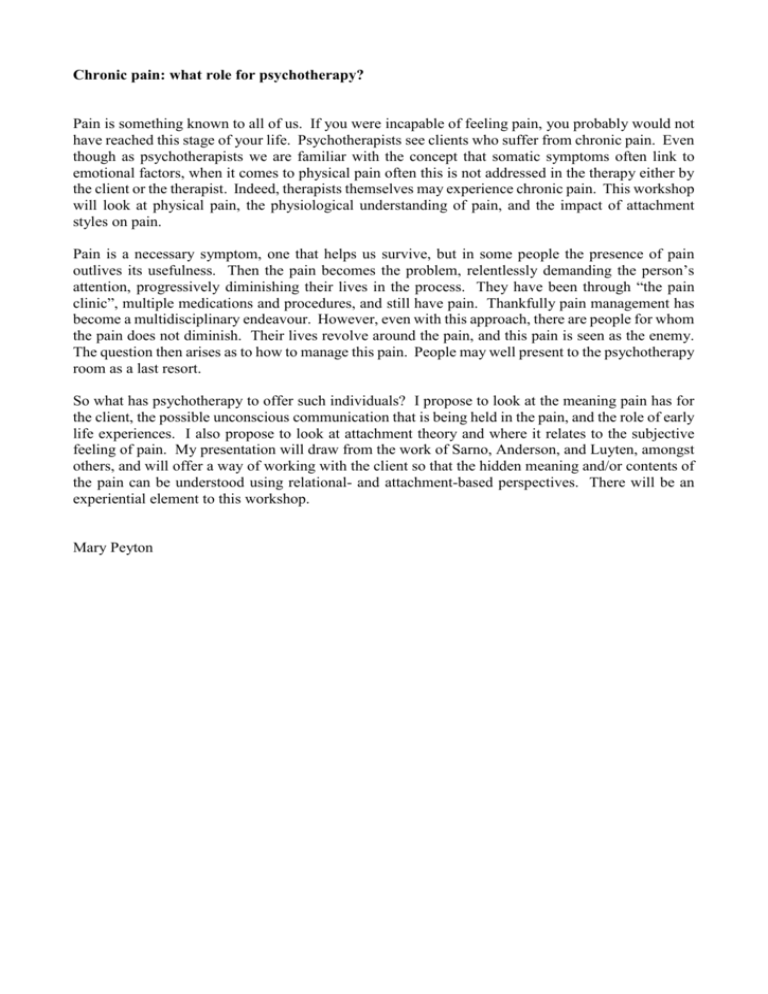
Chronic pain: what role for psychotherapy? Pain is something known to all of us. If you were incapable of feeling pain, you probably would not have reached this stage of your life. Psychotherapists see clients who suffer from chronic pain. Even though as psychotherapists we are familiar with the concept that somatic symptoms often link to emotional factors, when it comes to physical pain often this is not addressed in the therapy either by the client or the therapist. Indeed, therapists themselves may experience chronic pain. This workshop will look at physical pain, the physiological understanding of pain, and the impact of attachment styles on pain. Pain is a necessary symptom, one that helps us survive, but in some people the presence of pain outlives its usefulness. Then the pain becomes the problem, relentlessly demanding the person’s attention, progressively diminishing their lives in the process. They have been through “the pain clinic”, multiple medications and procedures, and still have pain. Thankfully pain management has become a multidisciplinary endeavour. However, even with this approach, there are people for whom the pain does not diminish. Their lives revolve around the pain, and this pain is seen as the enemy. The question then arises as to how to manage this pain. People may well present to the psychotherapy room as a last resort. So what has psychotherapy to offer such individuals? I propose to look at the meaning pain has for the client, the possible unconscious communication that is being held in the pain, and the role of early life experiences. I also propose to look at attachment theory and where it relates to the subjective feeling of pain. My presentation will draw from the work of Sarno, Anderson, and Luyten, amongst others, and will offer a way of working with the client so that the hidden meaning and/or contents of the pain can be understood using relational- and attachment-based perspectives. There will be an experiential element to this workshop. Mary Peyton


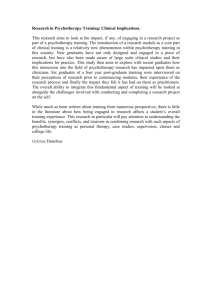

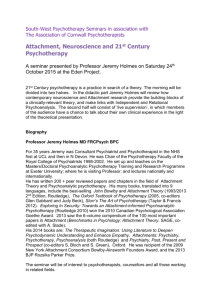
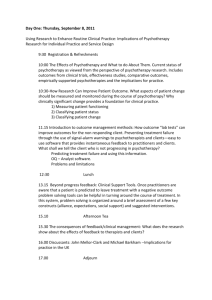

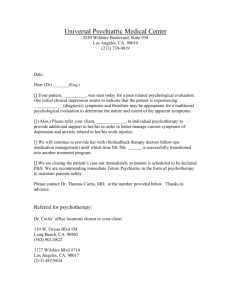
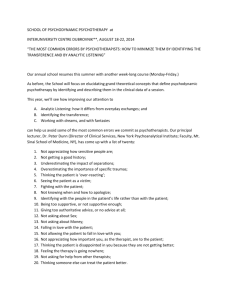
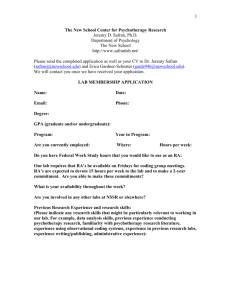
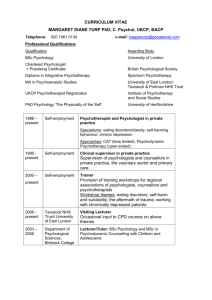

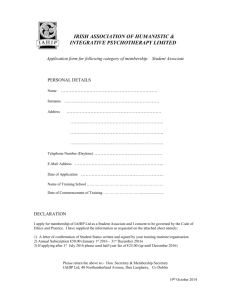
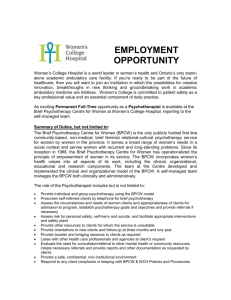
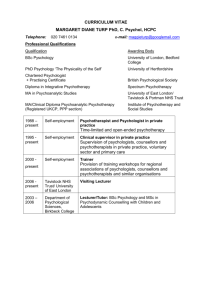
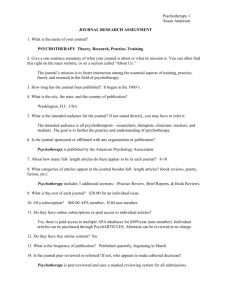
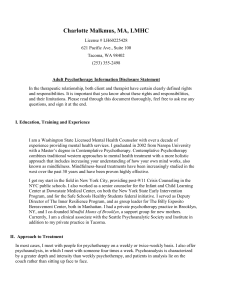
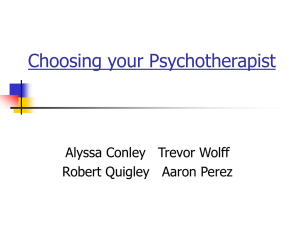
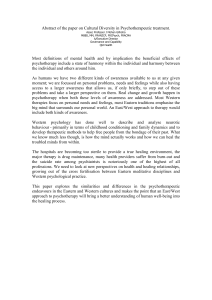

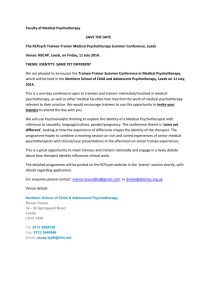
![UW2 - Psychiatric Treatments [2014]](http://s3.studylib.net/store/data/006859622_1-db6167287f6c6867e59a56494e37a7e7-300x300.png)